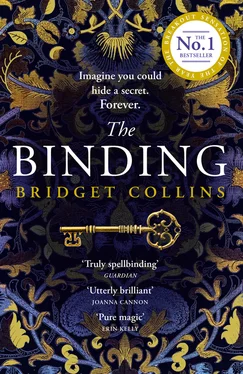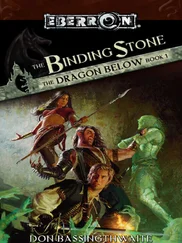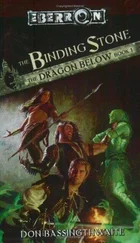I stoked the stove extravagantly because I’d chopped the wood myself, and no one could see me wasting it. Then I tidied methodically from one side of the room to the other, straightening shelves, sharpening tools, oiling the nipping press and sweeping up. I tidied cupboards and discovered old supplies of leather and cloth I hadn’t known we had, and a stash of marbled paper at the bottom of the plan chest. I found a bone folder carved with faint scrimshaw flowers, a book of silver leaf, a burnisher with a thick, umber-streaked agate … Seredith was tidy, but it was as if she’d never thrown anything away. In one cupboard I found a wooden box full of trinkets, wrapped in old silk as if they were important: a child’s bonnet, a lock of hair, a daguerreotype mounted in a watch case, a heavy silver ring that I tilted back and forth in my palm for a long time, watching the colours slide from blue to purple and green. I put that box back carefully, pushing it behind a pile of weights, and once it was out of sight I forgot it almost at once. There was a box of type that needed sorting, and jars of dye so old they needed to be poured away, and little dry nubs of sponge that needed washing. It all gave me pleasure – an unfamiliar sensuous pleasure, where everything – the neatness of a blade, the wind in the chimney, the yeasty smell of stale paste, the logs collapsing into ash in the stove – was distinct and magnified.
But this time, when I’d finished, what I felt wasn’t satisfaction but fear, as if I had been preparing for an ordeal.
When I’d taken Seredith’s dirty clothes away, her keys had been in the pocket of her trousers. Now they were in mine. Not the key that she wore round her neck, but the keys to the other doors, the front and back of the house, and the triple-locked doors at the end of the workshop … Their weight in my pocket felt like part of my body. The sense of possession I’d had blurred into something else.
I looked out at the expanse of marsh. The wind had died and now the clouds were massed in a thick grey bank, while the glints of water lay still as a mirror. Nothing stirred; it could have been a picture painted on the window-pane. Dead weather. What would they be doing at home? It was slaughtering time, unless Pa had started early; and there were repairs to be made, tools and tack and a back wall of the barn that needed seeing to … If we were going to run a hawthorn fence across the top of the high field, as I’d suggested last year, we would need to plant it soon. My nerves tingled at the memory of sharp thorns jabbing into cold fingers. For an instant I thought I could smell turpentine and camphor, the balm Ma made to ward off chilblains; but when I lifted my hand to my nose my palm smelt of dust and beeswax. I’d sloughed that life off like a skin.
I raised my head and listened. There was no sound from anywhere. The whole house was waiting. I took the bundle of keys out of my pocket, and walked round the lay press and along the worn floorboards to the far door. My heart thudded but the three keys went into the three locks and turned cleanly, one by one.
Seredith had kept the hinges well oiled. The door swung back as easily as if someone had opened it from the other side. I don’t know why I had expected it to be stiff. My pulse sped into a sudden crescendo that sent black specks whirling across my eyes; but after a few seconds my vision cleared and I could see a pale, bare room, with high uncurtained windows like the workshop. A table of scrubbed wood, with two chairs facing each other across it. The floor and walls were bare. I put the keys down on the table and the sound of it startled me.
I had no right to be here. But I had to be. I stood still, resisting the crawling sensation at the base of my spine.
Against the mottled grey of the windows the binder’s chair stood out in silhouette. It was straight-backed and simple – less comfortable than the one nearest to the door – but somehow I knew it was Seredith’s chair. I drew the other one out from the table, hearing the legs bump as I dragged it over the uneven floor, and sat down. How many people had waited here to have their memories taken away? Enough to wear a path into the floorboards, coming and going …
How did it feel? I could imagine the sick fear in the pit of your stomach, the terror that flickered when you tried to see past the point of no return, to the person you would be … But the moment itself? To have something wrenched out of the deepest part of you – how did that feel? And afterwards, when you had a hole inside you … I saw again the blankness in Milly’s eyes as she left, and clenched my jaw. Which was worse? To feel nothing, or to grieve for something you no longer remembered? Surely when you forgot, you’d forget to be sad, or what was the point? And yet that numbness would take part of your self away, it would be like having pins-and-needles in your soul …
I took a deep breath. It was too easy to imagine sitting here, in this seat; I ought to put myself in Seredith’s chair. What would it be like to be her? To look into someone’s eyes and then do – that – to them? The thought of it made me feel sick, too. Whichever way you looked at it … Seredith had called it helping . But how could that be right?
I stood up, caught my ankle on the side of the table, and steadied myself on the back of the chair. The carving cut into my palm, not hard enough to hurt but enough to take me by surprise. I looked down at the shape of it, the gleam of bluish light on the wooden scroll.
So many times it had been the light catching on something that brought on the illness. The latticed sun falling on the hall floor, the slant of daylight seen through a half-open door … I knew how it began, the bright shape – not quite a memory – that fitted like a key into a hole in my mind, and the sickness that spilt out. And now I felt the same shock of recognition and fear. I cringed instinctively, waiting for the blackness to swallow me. It would be the end, the abyss. Now that I was here, in the place I was most afraid of … the source, the heart.
My knees gave way. I dropped into the chair, bracing myself as if for a crash. But my mind stayed steady. A beam creaked, a mouse scratched in the thatch above the window. The darkness rolled and sucked like a tide, at arm’s length; and then, instead of drowning me, it receded.
I held my breath. Nothing happened. The darkness drew back and back, until I felt exposed, drenched in grey daylight until my eyes watered.
Time passed. I looked down at my hands on the scrubbed table. When I’d left home, they’d been dead white and spidery. Now there was a callous on my left forefinger from paring leather with a knife that was too blunt, and my left thumbnail was long so that I could position a finishing tool without burning myself. But it was the shape of them – thin but not bony, strong but not bulky – that made me see them for the first time. They weren’t a farmer’s hands – not like Pa’s – but they weren’t an invalid’s hands, either. I would have known that they were a bookbinder’s hands; and not just because they were mine.
I turned them over and looked at the lines on my palms that were supposed to tell me who I was. Someone – was it Alta? – had once told me that your left hand showed the fate you were born with, and your right showed the fate you made for yourself. My right hand had a deep, long line down the centre, cutting my whole palm in half. I imagined another Emmett, the Emmett who might have taken over the farm, the way my parents always planned: an Emmett who hadn’t got ill, and hadn’t ended up here, alone. I saw him look back at me with a grin, pushing his chilblained hands into his pockets, and then turn towards home, whistling.
Читать дальше












